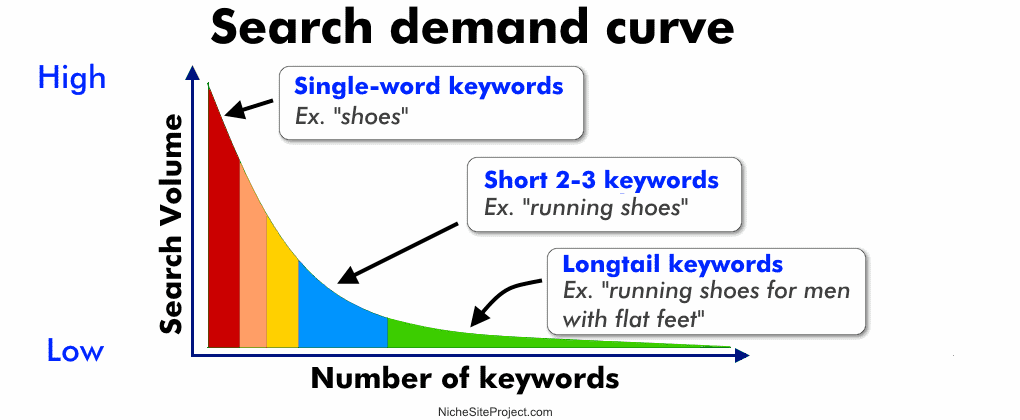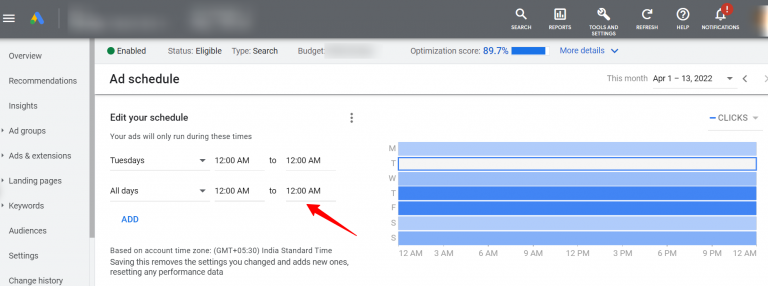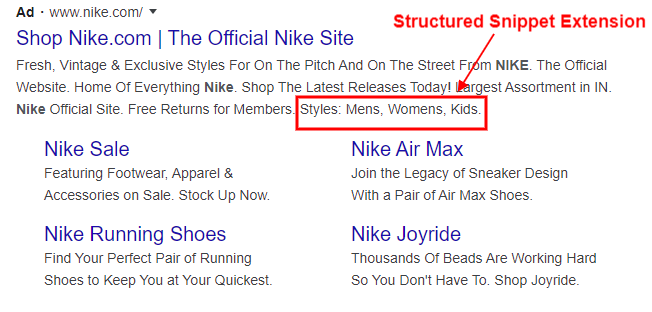One of our clients, a small e-commerce store, was struggling with their PPC campaigns. They were driving traffic to their website, but not getting many sales. And to make matters worse, their cost per click (CPC) was through the roof.
We knew something needed to change, so we decided to implement some PPC marketing hacks that we had learned from years of experience in the industry. We started with one simple hack: optimizing their ad copy.
By tweaking the headlines and descriptions, we were able to make the ads more appealing to their target audience, and as a result, we saw a significant increase in click-through rates.
From there, we moved on to other hacks, such as using negative keywords to eliminate irrelevant traffic and implementing retargeting campaigns to bring back potential customers who had abandoned their carts.
The results were astounding. Our client’s CPC dropped by over 40%, while their conversion rate increased by 65%. They were ecstatic, and we were thrilled to have helped them achieve such great results.
We want to share six of the most effective PPC marketing hacks that we’ve used to help clients like this one achieve better results from their campaigns.
By implementing these hacks, you can reduce your CPC and improve your overall campaign performance, just like our client did. So let’s dive in and discover these powerful PPC marketing hacks!
Hack #1: Target Long-tail Keywords
When it comes to PPC campaigns, targeting long-tail keywords is one of the most effective ways to reduce your cost per click (CPC) and improve your campaign performance. But what exactly are long-tail keywords, and why are they so important?
In short, long-tail keywords are longer and more specific phrases than your typical short-tail keyword. While short-tail keywords are usually one or two words, but long-tail keywords are usually three or more. For example, “running shoes” is a short-tail keyword, while “men’s running shoes with arch support” is a long-tail keyword.

There are several benefits to targeting long-tail keywords in your PPC campaigns:
Lower Competition
Long-tail keywords are usually less competitive than short-tail keywords, which means you’ll be able to bid less and still get your ads in front of your target audience.
Higher Conversion Rates
Long-tail keywords are more specific and often indicate a higher level of intent from the searcher. This means that people who are searching for long-tail keywords are often closer to making a purchase, which can lead to higher conversion rates.
Better Targeting
By targeting long-tail keywords, you can be more specific about the products or services you’re offering, which can help you reach a more targeted audience and avoid wasting money on irrelevant clicks.
So, how do you research and select effective long-tail keywords for your PPC campaigns?
Here are some tips:
- Use keyword research tools: There are many keyword research tools available, such as Google Keyword Planner, that can help you identify long-tail keywords that are relevant to your business.
- Analyze your website: Look at the content on your website and identify the long-tail keywords that are already driving traffic to your site.
- Consider user intent: Think about the questions or problems that your target audience might be searching for answers to, and create long-tail keywords that address those needs.
By targeting long-tail keywords in your PPC campaigns, you can reduce your CPC and improve your overall campaign performance. So, make sure to include long-tail keywords in your keyword strategy and watch your results improve!
Hack #2: Use Negative Keywords
Simply put, negative keywords are words or phrases that you exclude from your campaigns. By adding them to your campaign settings, your ads won’t show up for searches that include those keywords.
For example, if you’re selling high-end jewelry, you might want to exclude the keyword “cheap” to avoid showing up for searches like “cheap diamond necklace.”
Using negative keywords will…
Reduce Irrelevant Clicks
Excluding irrelevant keywords can prevent your ads from showing up for searches that aren’t relevant to your business. This can help you reduce irrelevant clicks, which can waste your ad spend and lower your ROI.
Improve ad Relevance
It can improve the relevance of your ads. This can help increase your click-through rate (CTR) and improve your ad quality score.
Save Money
Reducing irrelevant clicks and improving your ad quality score can improve your ROI and save money on your PPC campaigns.
Try using negative keywords in your next campaign and see the difference it’ll make in your ad returns.
Hack #3: Leverage Ad Scheduling
Ad scheduling, also known as dayparting, is the process of setting specific times and days for your PPC ads to show up.

Leveraging ad scheduling can target your audience at times when they are most likely to engage with your ads, which can lead to increased click-through rates, conversions, and ultimately, ROI.
One of the benefits of ad scheduling is the potential to reduce your CPC.
By focusing your ad spend on specific times and days, you can avoid bidding on ad impressions during times when your target audience is less likely to be active. This can help you optimize your ad spend and get more bang for your buck.
To use ad scheduling effectively, it’s important to identify the times and days when your target audience is most active. You can analyze your historical ad performance data, conduct market research, and test different schedules.
When setting up ad scheduling in your PPC campaigns, it’s also important to consider the time zone of your target audience and adjust your schedule accordingly. You should also test different schedules and analyze your performance data to optimize your ad scheduling strategy.
Here are some best practices for setting up and testing ad scheduling in your PPC campaigns:
- Analyze historical performance data to identify peak activity times and days for your target audience
- Set up ad scheduling in your campaign settings and adjust your bid strategy accordingly
- Test different ad scheduling strategies and analyze your performance data to optimize your schedule
- Consider the time zone of your target audience when setting up your ad schedule
- Monitor your performance metrics regularly to ensure that your ad scheduling strategy is effective and profitable.
If you’re looking for more ways to improve your PPC campaigns, check out this blog post.
Hack #4: Optimize Landing Pages
Landing pages are a crucial component of any PPC campaign. They are the pages that users land on after clicking on your ads, and they play a significant role in determining the quality score and CPC of your campaigns.
The quality score is a metric that Google uses to rate the relevance and quality of your landing pages and ads.
A higher quality score can lead to lower CPC and better ad placement. On the other hand, a low-quality score can result in higher CPC and poor ad performance.
To optimize your landing pages for better PPC performance, there are several key elements that you need to consider. These include a clear value proposition, compelling call-to-action, and mobile responsiveness.
A clear value proposition is a statement that communicates the unique benefit of your product or service to your target audience. It should be concise, easy to understand, and prominently displayed on your landing page.
A compelling call-to-action is the element that encourages users to take action, such as filling out a form, making a purchase, or contacting your business. It should be prominently displayed and easy to understand.
Mobile responsiveness is critical because many users access the internet on mobile devices.
Your landing pages should be designed to be mobile-friendly, with a responsive design that adapts to different screen sizes and orientations.
To test and optimize your landing pages, you can use A/B testing, which involves creating two versions of your landing page and testing them against each other.
You can also test different elements such as headlines, images, colors, and calls-to-action, and use the data to optimize your landing pages for better PPC performance.
Hack #5: Use ad extension

Ad extensions are additional pieces of information that can be added to your ads to provide more value and relevance to your target audience. They are a powerful tool that can improve the performance of your PPC campaigns by making your ads more engaging and informative.
There are several types of ad extensions that you can use in your PPC campaigns. One type is site link extensions, which allow you to add additional links to specific pages on your website. This can help users find what they are looking for more quickly and easily, and it can also help to increase click-through rates (CTR) and quality scores.
Another type of ad extension is callout extensions, which allow you to add additional text to your ads, such as special offers or promotions. This can help to make your ads more compelling and increase the likelihood of users clicking on them.
Structured snippets are another type of ad extension that allows you to highlight specific features or benefits of your products or services. This can help to differentiate your business from competitors and provide more relevant information to users.

To get the most out of ad extensions, choosing the right ones for your campaign and implementing them correctly is important.
Hack #6: Monitor and Optimize Campaigns Regularly
With PPC campaigns, the work doesn’t end after launching the ads. Ongoing monitoring and optimization are crucial for improving CPC and ROI.
By regularly reviewing campaign data and making necessary adjustments, you can ensure that your ads are performing at their best.
One of the key metrics to track is the click-through rate (CTR), which measures the number of clicks your ad receives divided by the number of impressions.
A low CTR can indicate that your ad copy or targeting isn’t resonating with your audience, so you may need to adjust these elements to improve performance.
Another important metric to track is the conversion rate, which measures the percentage of people who clicked on your ad and completed a desired action, such as filling out a form or making a purchase.
By tracking your conversion rate, you can identify which ads and landing pages are driving the most conversions and optimize them further.
Additionally, it’s important to keep an eye on your cost per acquisition (CPA), which measures the average cost of acquiring a new customer. By optimizing your campaigns to improve your conversion rate and reduce wasted spend, you can lower your CPA and improve your overall ROI.
To optimize your campaigns, you can make adjustments to elements such as ad copy, targeting options, and bidding strategies.
For example, if a certain keyword is driving a high CPA, you may want to adjust your bids or exclude that keyword altogether. You can also test different ad variations and landing pages to see which combinations perform the best.
Try these PPC Hacks for maximum success
So far, we’ve covered six powerful PPC marketing hacks that can help you improve your cost-per-click (CPC) and overall ROI.
These hacks include targeting long-tail keywords, using negative keywords, leveraging ad scheduling, optimizing landing pages, using ad extensions, and monitoring and optimizing campaigns regularly.
By implementing these hacks, you can improve your campaign performance and get more out of your advertising budget. So don’t hesitate to give them a try and see the results for yourself!
We hope this post has been helpful and informative. We encourage you to share your own PPC marketing tips or ask any questions you may have in the comments section below.
Let’s keep the conversation going and help each other succeed in the world of PPC advertising.
Also, if you need help with running PPC ads, Flying V Group team is willing to help you. Schedule a free consultation now.






0 Comments